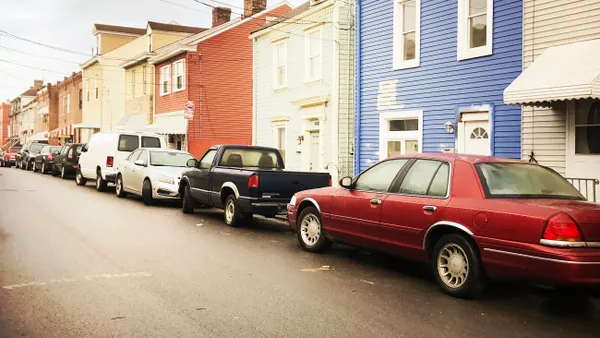Dive Brief:
- Data mobility company Coord unveiled Curb Analytics, a tool for cities, companies and interest groups to present curb data and regulations in a visual and adaptable way.
- Curb Analytics will present two different visual products. The Asset map will show physical structures on the curb, like fire hydrants, curb ramps or painted pavement. The Regulations map will have color-coded information on whether curb space is reserved for certain vehicles, what parking rules are and how much users have to pay for a certain spot.
- The tool is an extension of Coord’s data collection and distribution, but is designed for "understanding and analyzing that data at a human level," co-founder and CTO Jacob Baskin told Smart Cities Dive.
Dive Insight:
As curb space becomes more crowded with different types of vehicles and assets — including micromobility vehicles — Coord has been collecting data on cities’ rules and assets, information that Baskin said cities often don’t have in one central place. The company has previously announced a number of tools around that data, including the launch last month of Open Curbs, an open data set that standardizes information the company has collected. Coord also previously released that data through Curbs API.
The latest tool, Baskin said, is like previous iterations but "on steroids." Digitized rules and assets will be displayed visually, and can be crunched for different needs. For example, ride-hailing companies like Uber and Lyft could gather city-level data on pick-up and drop-off zones, potentially adding it to their existing mapping software. Cities could also use the data to understand where repairs or rule changes are needed.
So far, Coord has collected data for New York City, Seattle, San Francisco and Los Angeles, with more cities on the way.
The tools come as more cities are trying to get a handle on curb use, as there’s more competition for existing space. Besides Coord, startups like Mapillary have sought to digitize parking sign and curb information in a bid to help cities manage it. Others are looking at ways to clear up congestion, like a collaborative pilot among Charlotte, NC, Detroit and Omaha, NE to charge for scooters and bikes to take up curb space.










